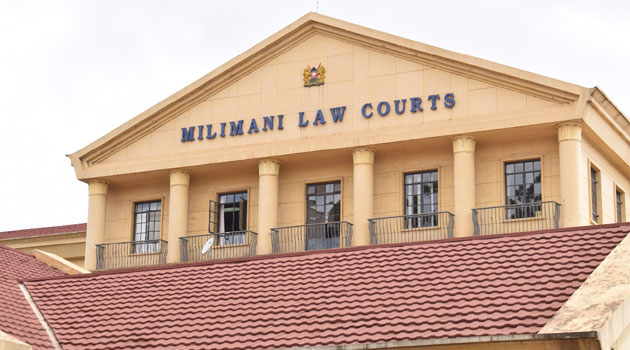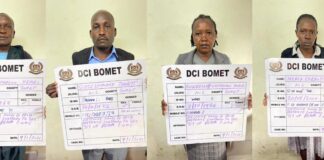Three siblings have initiated legal proceedings against Equity Bank and two other entities, claiming that an elaborate deception led to the disappearance of Ksh 10.46 million from their fixed deposit account.
In a case filed at Nairobi’s Milimani Law Courts, Isaac Kennedy Mwangi, Mary Karanja and Joseph Kinuthia allege that Marina Group Limited, Lucy W. Muturi and Equity Bank Kenya Limited collaborated in what court documents describe as a “well-coordinated fraudulent scheme” that used a questionable court ruling to unlawfully withdraw their money.
The conflict involves a joint account maintained at Equity Bank’s Ngong Branch by the plaintiffs and their father, David Karangi. Court records indicate the account was established on 27 September 2024 with an initial deposit of Ksh 10.47 million.
The situation came to light in July 2025 when Isaac Mwangi made a routine visit to the Kitengela Branch and learned that the account balance had been wiped out to comply with a garnishee order from a lawsuit they knew nothing about: Embu MCCC/E201 of 2024: Marina Group Limited vs. Lucy Muturi & The Estate of David Kariuki Karangi.
Legal representatives from Mugane Law LLP subsequently investigated the matter, revealing what they characterise as a sophisticated theft enabled through legal channels. The initial lawsuit, initiated by Marina Group in November 2024, sought to recover Ksh 19.8 million from Lucy Muturi and the “Estate of David Kariuki Karangi” for farm equipment purportedly supplied.
The plaintiffs point to several concerning anomalies, observing that their father was still living when the case was brought against his “estate” ,he died in February 2025, several months after the legal proceedings concluded. They further reject the claim that any goods were supplied and challenge the validity of a debt recovery agreement submitted as evidence, maintaining that their father’s alleged signature must be fabricated since he “used to use his thumbprint”.
The Embu lawsuit advanced with unusual swiftness. Legal counsel for both sides : Onyango & Aywa Advocates for Marina Group and B.K Rono & Co. Advocates for the defendants, entered into a consent judgment on 27 November 2024 for the entire Ksh 19.8 million, with payment required within 48 hours.
The agreement authorised a garnishee order against Lucy Muturi to retrieve funds from a designated Ngong Branch account numbered 0700385782428. A formal decree followed the next day. Court filings note that “the entire fraudulent scheme targeting the subject account lasted a total of 15 days from the date of institution of the suit to the date of the issuance of the decree and a further 16 days from the issuance of the decree to the fraudulent payment of the monies thereof”.
Equity Bank stands accused of committing the crucial error in this sequence. On 14 December 2024, the institution withdrew money from the plaintiffs’ account ,which bore a different number and was registered under different names, transferring Ksh 10,464,725 to Marina Group’s legal representatives.
This transaction occurred even though the court decree and a follow-up communication from Onyango & Aywa Advocates specifically identified account number 0700385782428 as the source of funds.
Isaac Mwangi’s witness testimony emphasises the absence of proper procedure, stating, “We were never involved whatsoever during the said court proceedings nor by the bank prior to the release of our monies as the rightful joint owners of the subject account”.
The plaintiffs have brought comprehensive fraud allegations against Marina Group and Lucy Muturi, citing conspiracy to litigate against a non-legal entity and fabrication of a debt agreement.
Their claims against Equity Bank encompass accusations of collusion, carelessness and a fundamental breach of fiduciary responsibility.
Legal papers contend that the bank did not provide “the due care and protection of their property in the circumstances leading to a loss of Kshs. 10,464,725”.
This litigation poses significant questions about protective mechanisms within Kenya’s financial and judicial frameworks, indicating how a dubious, accelerated court case coupled with inadequate banking verification can result in devastating financial harm to customers.
The siblings are pursuing a judgment against all three defendants, both collectively and individually, for complete restitution of their lost funds alongside legal expenses and interest.
As the judicial process continues, it will examine the actions of each participant, from the obtaining of a consent judgment in Embu under perplexing conditions to the essential procedural failure at Equity Bank that has compelled a family to seek reparation through the same legal channels they believe were manipulated to deprive them of their savings.
Written by Were Kelly



















